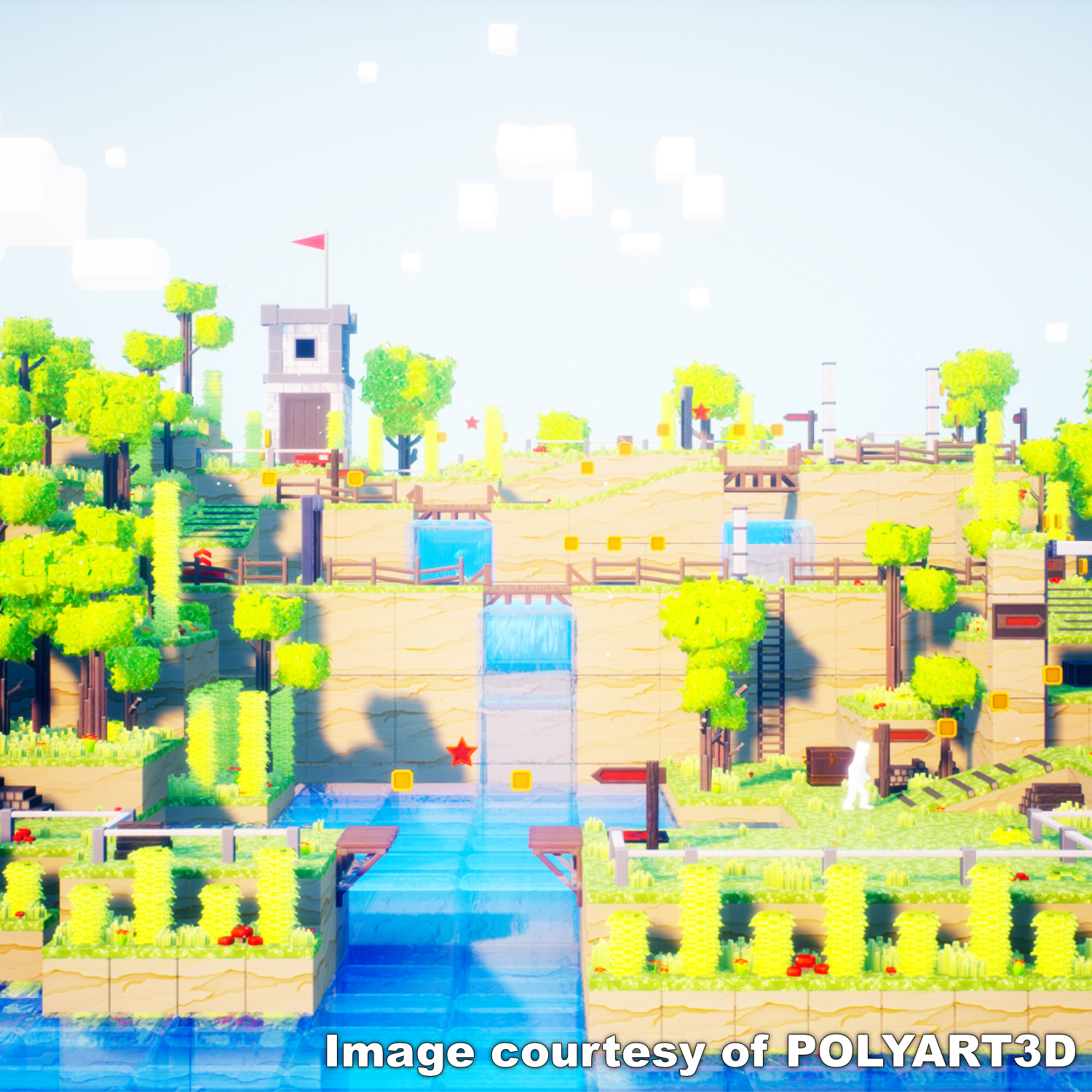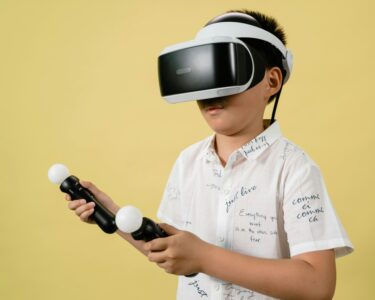
The integration of Artificial Intelligence (AI) into the gaming industry has transformed how games are created, played, and experienced. AI isn’t just about making games smarter; it’s about redefining creativity, engagement, and personalization. Whether it’s powering lifelike Non-Player Characters (NPCs), automating testing, or generating dynamic content, AI has become a critical tool for developers and players alike.
What Does AI in Gaming Mean?
AI in gaming refers to using computational algorithms and machine learning to create responsive and adaptive gaming environments. By leveraging AI, developers can design characters, worlds, and scenarios that dynamically interact with the player. AI ensures that gaming experiences feel immersive, challenging, and personal.
Unlike traditional coding, where behaviors are hardwired, AI allows games to “think,” analyze player actions, and make decisions in real-time. This leads to intelligent NPCs, procedural level generation, and adaptive gameplay that keeps players engaged.
Advantages of AI in Gaming
- 1. Immersive Player Experience
- AI creates lifelike and engaging environments that feel responsive to the player’s actions.
- 2. Improved Realism
- From lifelike NPC behaviors to dynamic worlds, AI bridges the gap between the virtual and real.
- 3. Dynamic Content Creation
- AI-driven procedural content ensures endless possibilities for levels, environments, and quests.
- 4. Time and Resource Optimization
- Automating repetitive tasks like game testing and asset generation saves time and reduces costs.
- 5. Player-Centric Design
- Games can analyze player behavior and preferences to adapt in real-time, offering personalized experiences.
Core Functions of AI in Gaming
| Function | Role in Gaming |
| NPC Intelligence | Simulates realistic decision-making and behavior in non-player characters. |
| Procedural Generation | Dynamically creates maps,levels,and assets. |
| Adaptive Difficulty | Modifies gameplay difficulty based on player performance and behavior. |
| Game Analytics | Tracks and interprets player behavior to enhance design and engagement |
| Automated Testing | Identifies bugs,stress tests systems,and quality before release |
Applications of AI in the Gaming Industry
- 1. Smarter NPCs
- NPCs are no longer predictable, thanks to AI. They can learn, adapt, and react based on player interactions, making gameplay more engaging.
- Example: Games like Far Cry use AI-driven NPCs that plan strategies and adapt to player actions.
- 2. Procedural Content Generation (PCG)
- AI helps developers design dynamic levels, maps, and quests, ensuring fresh gameplay every time.
- Example: Minecraft utilizes procedural generation to create infinite worlds, making every player’s experience unique.
- 3. Adaptive Gameplay
- AI tracks player behavior and adjusts challenges to maintain engagement without frustrating or boring the player.
- Example: Racing games like Forza Horizon use AI to match opponents to a player’s skill level.
- 4. AI-Generated Music and Soundscapes
- AI tools compose dynamic background scores that adapt to in-game scenarios, enhancing immersion.
- Tool: AIVA is widely used for creating game-specific soundtracks.
- 5. AI in Visual Design
- AI accelerates the process of creating 2D and 3D game assets, offering developers efficiency and innovation.
- Example Tool: MidJourney and DALL·E for generating stunning visual concepts.
- 6. Automated Game Testing
- Manually testing games is time-consuming, but AI automates the process by simulating millions of scenarios to detect bugs.
- Tool: Platforms like GameDriver optimize game testing and quality control.
AI Tools for Game Developers
| Tool Name | How It Helps |
| Unity ML-Agents | Creates smarter and more engaging gameplay,realistic -simulation |
| Houdini | Automates the creation of dynamic levels,Artist friendly tools,VFX & Simulation |
| Unreal MetaHuman | Develop ultrarealistic NPCs |
| AIVA | Creates adaptive and mood-based soundtracts |
| Midjourney | Visual content generation.User friendly interface,Speeds up creation of stunning graphics |
| Suno.ai/udio | It enables game developers to produce professional quality audio assets efficiently,enhancing the overall gaming experience |
Future of AI in Gaming
- 1. Hyper-Personalized Gameplay
- AI will enable games to offer unique experiences tailored to individual players, adapting to their skill levels, preferences, and even emotions.
- 2. Dynamic Storytelling
- AI-driven narratives will create branching storylines that evolve based on player choices, offering virtually unlimited replayability.
- 3. VR and AR Enhancements
- AI will enhance Virtual Reality (VR) and Augmented Reality (AR) games, making environments more interactive and immersive.
- 4. AI-Powered Matchmaking
- Multiplayer games will use AI to create fair and enjoyable matchmaking systems, reducing frustration and toxicity.
- 5. Fully Autonomous Development
- Future AI tools may design entire games independently, reducing the need for manual intervention while increasing creative possibilities.
Tips for Game Developers Leveraging AI
- 1. Start Small
- Experiment with AI on smaller projects, such as NPC behaviors or dynamic level creation, before scaling up to larger games.
- 2. Use Pre-Built AI Tools
- Platforms like Unity ML-Agents and Houdini can simplify the integration of AI into your game development process.
- 3. Focus on Player Engagement
- AI should enhance the player experience, whether by creating more intelligent opponents or adapting gameplay to match their preferences.
- 4. Automate Testing Early
- AI-based testing tools can identify bugs early, saving significant time and resources during development.
- 5. Explore AI for Creativity
- Use AI tools like AIVA for music and MidJourney for art to accelerate creative workflows while maintaining quality.
- 6. Monitor AI Ethics
- Ensure your AI systems balance challenge and fairness to maintain enjoyable and ethical gameplay experiences.
Challenges of Using AI in Gaming
- 1. Learning Curve
- Implementing AI requires technical expertise and understanding of machine learning algorithms.
- 2. High Initial Investment
- Advanced AI solutions can be costly to integrate into game development pipelines.
- 3. Balancing AI Complexity
- Overcomplicating AI can frustrate players, while overly simple AI may lack engagement.
AI has redefined the gaming industry by enhancing creativity, improving efficiency, and personalizing player experiences. With applications ranging from smarter NPCs to dynamic content creation, AI offers limitless possibilities for developers. As tools become more accessible and technology advances, the future of AI in gaming promises even greater innovation.
Are you ready to level up your game development with AI? Start small, experiment with tools, and watch as AI transforms the way you create and experience games.







